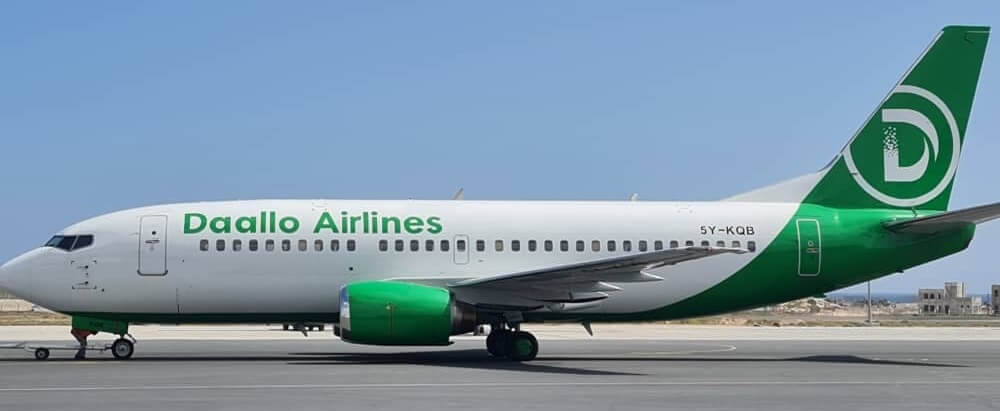Why Should Somaliland Be Recognized? Arguments & Perspectives
Introduction
Exploring the compelling arguments for why Somaliland deserves international recognition requires a nuanced understanding of its unique history, stable governance, and strategic location in the Horn of Africa. Somaliland declared independence from Somalia in 1991 and has since maintained a de facto autonomous government, separate currency, and security forces. Unlike Somalia, which continues to face political instability and conflict, Somaliland offers a rare example of peace and democratic progress in the region. Recognition is not merely symbolic; it affirms the self-determination of Somaliland’s people who have cultivated their own identity and institutions over the past three decades. This article unpacks these factors, weighing Somaliland’s case for sovereignty and international legitimacy.
Common Causes
There are several foundational reasons fueling the call for Somaliland’s international recognition. Foremost is its sustained democratic stability—unusual in a region often marked by upheaval. Somaliland has conducted multiple peaceful elections over 30 years, establishing a credible governance baseline. Furthermore, its strategic significance in counterterrorism and maritime security cannot be overstated; Somaliland’s ports and coastline offer access points vital to regional and global security. Functioning as a de facto independent state, it exercises governmental control with its own currency and security apparatus. Recognition would also respect the principle of self-determination, acknowledging the Somaliland people’s clear will. In contrast to the ongoing conflict in Somalia, Somaliland offers a stable alternative, strengthening regional peace efforts. According to The Hill, despite lacking official recognition, Somaliland has built “a reasonably free and democratic society” over decades.
Tech Insights (Matthew)
Somaliland’s approach to governance incorporates forward-thinking technology that enhances stability and security. Biometric identification systems are increasingly utilized for voter registration and citizen authentication, reducing fraud and strengthening electoral integrity. Secure communication networks enable government agencies to coordinate efficiently, vital for counterterrorism efforts in the volatile Horn of Africa. These digital tools fortify Somaliland’s institutional capacity, supporting its case for formal recognition by demonstrating advanced administrative competence. Technology also aids transparency initiatives, allowing citizens better access to government operations. These tech-driven governance strategies mark a variance from the baseline often seen in fragile states, presenting Somaliland as a model of pragmatic innovation under challenging conditions. Embedding these systems effectively balances modernization with security needs, showcasing Somaliland’s capability as a sovereign actor.
This video provides a clear overview of Somaliland’s independence status and the complexities limiting its international recognition, enriching your understanding of the topic.
Practical Fixes/Tips
For Somaliland to advance its quest for international recognition, proactive diplomatic engagement is necessary alongside maintaining ongoing internal stability. Transparency reforms can offer measurable indicators to the international community reflecting Somaliland’s governance quality and accountability. Additionally, fostering inclusive governance structures that represent diverse clan and political interests will address concerns over potential marginalization. These efforts reduce variance in political stability and present Somaliland as a responsible state actor committed to international norms. Dialogue with regional organizations and global powers can clarify misunderstandings surrounding its sovereignty claims. Monitoring progress via clear, data-driven transparency metrics can solidify Somaliland’s standing. An observation checklist for Somaliland’s recognition process includes:
Expert Opinion
Analysts underscore Somaliland’s pivotal role in regional stability and maritime security in the Horn of Africa. Many experts argue that recognition could set a vital precedent for self-determination across Africa’s contentious border disputes. Acknowledging Somaliland formally may encourage peaceful resolutions elsewhere and bolster security frameworks combating terrorism and piracy in adjacent waters. The Council on Foreign Relations highlights Somaliland as a unique breakaway state that exercises effective control and governance despite lacking formal recognition. Similarly, the Heritage Foundation emphasizes the U.S. strategic interest in recognizing Somaliland to strengthen democratic allies countering extremist threats. These perspectives indicate the broader geopolitical and security benefits of formal acknowledgment, aligning with international peace priorities and the sovereignty of peoples.
Recommended Products
Supporting Somaliland’s economy is another pathway toward strengthening its international position. Purchasing goods from local artisans contributes directly to economic self-reliance, empowering communities and creating sustainability. This grassroots economic development boosts Somaliland’s internal resilience and legitimacy. Unfortunately, no specific product cards are available at this time, but patronizing Somaliland’s growing artisanal markets aids its broader goals of sovereignty and recognition by demonstrating viable governance backed by economic stability.
Wrapping Up
Somaliland’s enduring pursuit of recognition is deeply rooted in its distinct history, democratic progress, and strategic importance. Acknowledging Somaliland internationally could promote peace and self-determination in the Horn of Africa, providing a counterbalance to Somalia’s ongoing instability. The arguments for Somaliland recognition are supported by its de facto statehood, governance stability, and salient role in regional security. As a baseline, this case compels diplomatic reconsideration to affirm the wishes of nearly three million people who have carved a path toward sovereignty. According to The Heritage Foundation, recognizing Somaliland aligns with strategic U.S. interests, further cementing the rationale behind these arguments.
FAQ
- Q: What are the main arguments for recognizing Somaliland?A: The primary arguments include Somaliland’s stable democratic governance over 30 years, its de facto independent status with functioning institutions, its strategic location enhancing regional security, and respect for the Somaliland people’s right to self-determination.
- Q: What are the potential drawbacks of recognizing Somaliland?A: Potential drawbacks encompass regional diplomatic tensions, concerns over encouraging secessionist movements in Africa, and the challenge of balancing relations with Somalia. However, Somaliland’s demonstrated stability offers mitigating factors.
- Q: How stable is Somaliland compared to Somalia?A: Somaliland is markedly more stable, with regular elections, functioning government institutions, and comparatively low conflict levels, contrasting sharply with Somalia’s ongoing civil strife and governance challenges.
- Q: What is the US’s current stance on Somaliland’s recognition?A: The United States has not officially recognized Somaliland but has expressed increasing strategic interest, especially regarding security cooperation and democratic development, as noted by The Hill.
- Q: How long has Somaliland been seeking international recognition?A: Somaliland has pursued international recognition steadily since declaring independence in 1991, striving to establish itself as a sovereign state for over three decades.






